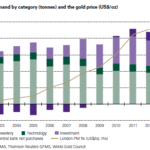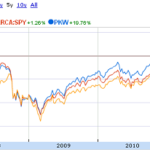“During the day, I am employed as a business analyst for a multi-billion dollar bio-tech company,†explains Ken Rupert. “As such, I am tasked with looking at processes, procedures, and operations to identify areas of opportunity to improve operations. This usually means I look for opportunities to make the business more effective and efficient.â€
That’s the gist of a business analyst’s role. But the job gets much more complex as you try to break it down. Here is some further detailing:
What they do
“After identifying areas of opportunity, I develop strategic solutions and project-manage the implementation of sustainable change,†continues Rupert, who has also worked as a business analyst for a Fortune 500 telecommunications company. He has recently transformed the skills he learned there to start a strategic personal success life-coaching business, The Vita-Copia Grou. “Sustainable change is change that, once achieved, no longer requires a high level of attention since it becomes part of the corporate culture. Becoming a business analyst has to be the essence of who you are.â€
Cathy Cecere is the director of marketing for RG Performance Group, a management consulting firm that provides performance optimization solutions. She has worked with several experts on business analysis, and considers one of the job’s chief duties to be eliciting the needs of the business and aligning them with delivered IT solutions.
Further, the business analyst needs to describe key things in terms the business can understand. Included among these, Cecere notes, are: the business problem or opportunity; solution alternatives; and the deliverables of a project.
A recent posting on MoneyJobs.com for a business analyst asked that candidates have an understanding of inbound and outbound EDI and IDoc functions; a commitment to delivering on service level agreements focused on exceeding customer expectations; the ability to configure full sales cycles, output determination, inter-company trading, foreign trade, and more.
What they need
So what does it take to become a business analyst with moneyjobs.com? According to Rupert, “You must be highly analytical, creative, and able to motivate others in a logical progression of change management. You must possess the ability to envision achievements as if they have already happened. You have to know what a change is going to look like before you can motivate others to change.â€
He concludes by saying, “Great business analysts are born, they are not taught.â€
Cecere suggests training at the International Institute of Business Analysis (IIBA). In fact, she calls IIBA certification “the mark of a knowledgeable BA.†On the IIBA’s website, they list degrees in business or information technology as good starting points for a business analyst career. From there, certifications can help one get settled and advance in the career.
The IIBA offers two designations: the Certification of Competency in Business Analysis (CCBA), and the Certified Business Analysis Professional (CBAP). The CCBA requires 3,750 hours of hands-on business analysis experience and completion of an exam covering six primary knowledge areas, with proficiency in at least two. Recipients of the CCBA work professionally not just as business analysts but as consultants, systems analysts, process improvement specialists, requirements analysts and managers, and more.
The CBAP designation has similar requirements, but to a more extensive degree. For instance, candidates need 7,500 hours of business analysis work experience in the last ten years, including 900 hours in four of the six knowledge areas; two references from a career manager, client or previous CBAP recipient; and more. These professionals are considered to be the senior members of the business analysis community, and, per the IIBA’s website, “experts in identifying the business needs of an organization in order to determine the best solutions.â€
What they earn
According to CBSalary.com, the salary engine for CareerBuilder.com and MoneyJobs.com, the annual average salary for a business analyst in the U.S. is $82,232.











{ 0 comments… add one now }